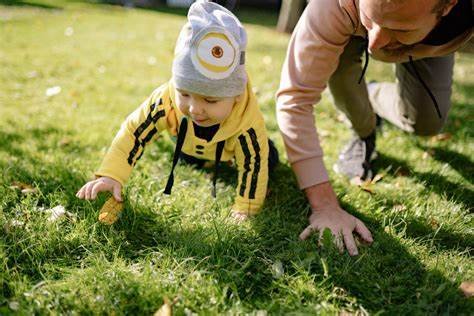Supporting your baby’s development during the first years is vital for their growth. Early interactions, nurturing environments, and proper stimulation lay the foundation for cognitive, emotional, and physical skills. Here’s how to encourage early development and create opportunities for your baby to thrive.
1. Foster Emotional Bonds
Bonding with your baby helps them feel safe and secure. Regular cuddles, eye contact, and gentle words nurture emotional growth.
Tip: Respond to their cries promptly to build trust and a sense of security.
2. Promote Cognitive Development
Introduce activities that stimulate your baby’s brain. Simple games like peekaboo or showing colorful toys help them understand their environment.
Tip: Read to your baby daily. Books with bright images and textures spark curiosity and language development.
3. Support Physical Growth
Physical milestones like rolling over, crawling, and walking require practice and encouragement. Tummy time helps strengthen their neck and back muscles.
Tip: Create a safe space for your baby to move and explore freely.
4. Encourage Social Interaction
Even from an early age, babies benefit from interacting with others. Family members, playgroups, or baby classes introduce them to new faces and sounds.
Tip: Narrate your actions to your baby to expose them to language and social cues.
5. Develop Fine Motor Skills
Activities like grasping toys or finger foods enhance hand-eye coordination and fine motor skills. Provide safe objects of varying sizes for them to hold.
Tip: Use stacking blocks or textured toys to make learning fun.
6. Introduce Routine and Consistency
Babies thrive with consistent routines. Set regular times for meals, naps, and play to provide structure and predictability.
Tip: A bedtime routine with soothing activities like a warm bath or lullabies fosters better sleep.
Why Early Development Matters
Early stimulation helps shape your baby’s brain during its most critical growth phase. Positive interactions and experiences enhance learning capacity, emotional regulation, and social confidence.
Overcoming Challenges
Parenting isn’t always smooth. If your baby seems slow to meet milestones, stay patient and supportive. Consult a pediatrician for guidance, as each baby develops at their own pace.
Conclusion
Encouraging early development in your baby doesn’t require elaborate methods. Simple, loving interactions and age-appropriate activities make a significant impact. By being attentive and nurturing, you provide the best environment for your baby to grow, explore, and reach their full potential.










